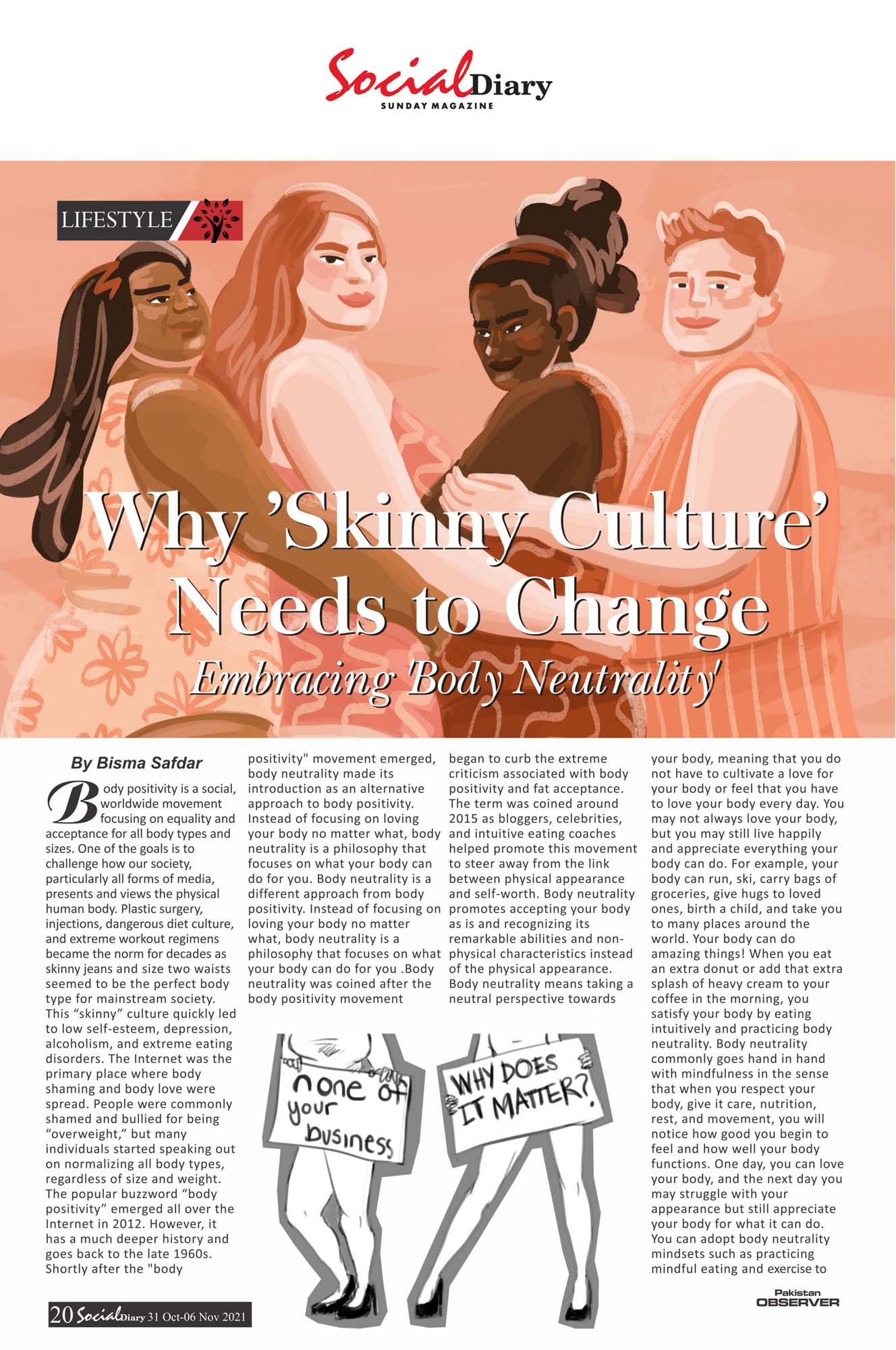Body positivity is a social, worldwide movement focusing on equality and acceptance for all body types and sizes. One of the goals is to challenge how our society, particularly all forms of media, presents and views the physical human body. Plastic surgery, injections, dangerous diet culture, and extreme workout regimens became the norm for decades as skinny jeans and size two waists seemed to be the perfect body type for mainstream society. This “skinny” culture quickly led to low self-esteem, depression, alcoholism, and extreme eating disorders. The Internet was the primary place where body shaming and body love were spread. People were commonly shamed and bullied for being “overweight,” but many individuals started speaking out on normalizing all body types, regardless of size and weight. The popular buzzword “body positivity” emerged all over the Internet in 2012. However, it has a much deeper history and goes back to the late 1960s. Shortly after the “body positivity” movement emerged, body neutrality made its introduction as an alternative approach to body positivity. Instead of focusing on loving your body no matter what, body neutrality is a philosophy that focuses on what your body can do for you. Body neutrality is a different approach from body positivity. Instead of focusing on loving your body no matter what, body neutrality is a philosophy that focuses on what your body can do for you .Body neutrality was coined after the body positivity movement began to curb the extreme criticism associated with body positivity and fat acceptance. The term was coined around 2015 as bloggers, celebrities, and intuitive eating coaches helped promote this movement to steer away from the link between physical appearance and self-worth. Body neutrality promotes accepting your body as is and recognizing its remarkable abilities and non-physical characteristics instead of the physical appearance. Body neutrality means taking a neutral perspective towards your body, meaning that you do not have to cultivate a love for your body or feel that you have to love your body every day. You may not always love your body, but you may still live happily and appreciate everything your body can do. For example, your body can run, ski, carry bags of groceries, give hugs to loved ones, birth a child, and take you to many places around the world. Your body can do amazing things! When you eat an extra donut or add that extra splash of heavy cream to your coffee in the morning, you satisfy your body by eating intuitively and practicing body neutrality. Body neutrality commonly goes hand in hand with mindfulness in the sense that when you respect your body, give it care, nutrition, rest, and movement, you will notice how good you begin to feel and how well your body functions. One day, you can love your body, and the next day you may struggle with your appearance but still appreciate your body for what it can do. You can adopt body neutrality mindsets such as practicing mindful eating and exercise to build the body you desire.
SOCIALDIARY
Social Accounts


























